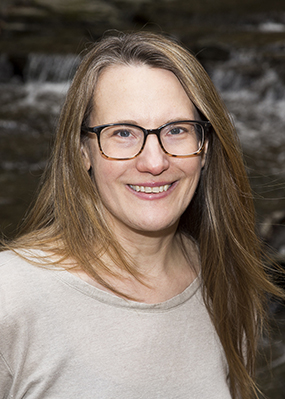Andrea Case named chair of MSU’s Department of Plant Biology
Andrea L. Case has been appointed chair of the Michigan State University Department of Plant Biology in the College of Natural Science (NatSci). Case is an evolutionary ecologist who specializes in studying floral polymorphism in plant populations. She came to MSU in January from Kent State University, where she was a professor in the Biological Sciences Department.

Andrea L. Case, professor and chair of the MSU Department of Plant Biology in the College of Natural Science. Courtesy photo
With her extensive background in the evolutionary ecology of plants, Case brings broad experience in the foundational research of plant biology. She also brings leadership experience from her recent service as executive vice president for the Society for the Study of Evolution.
“I was attracted to MSU by its large and dynamic community of plant scientists,” she said, “as well as the opportunity to contribute to foundational research in plant biology and to engage with other units and programs across MSU.”
NatSci Dean Phil Duxbury is thrilled that Case has joined MSU to lead the plant biology department and to add her expertise to the broader plant science community.
“It is terrific to have Dr. Case serve in this important role,” said Phil Duxbury, NatSci dean. “This department is central to the leadership that MSU has in the field of plant biology, and Dr. Case has the broad set of skills required to be an outstanding success in this role, including a proven record of leadership in the plant sciences community, an excellent fundamental research program in plant evolutionary biology, the ability work with interdisciplinary teams and an excellent record of DEI and community support work. Her addition provides exciting opportunities for the continued growth of diverse excellence in the plant sciences at MSU.”
Case is committed to maintaining the department’s international prominence as a leading plant biology program, while fostering and supporting its diverse and dynamic academic community.
“Plants play a critical but underappreciated role in addressing global challenges such as the loss of biological diversity, climate change, food security, and environmental health,” she said. “We need a broad understanding of how plants work. The motto of PLB is ‘molecules to ecosystems.’ We need this perspective if we are to fully implement strategies for addressing grand challenges.”
Case’s research broadly explores how populations of plants become different from one another across their range and the ways they interact with each other and with their environments.
She joined MSU with her partner, Christopher Blackwood, a professor in the Department of Plant, Soil and Microbial Sciences in the College of Agriculture and Natural Resources. Their collaborative research investigates the history of those interactions and how they contribute to patterns of coexistence within plant communities. In addition to recognizing the effects on plants of differing climates in different places, the team studies how reproductive behavior varies across a species range.
Case’s research group has relocated to MSU from Kent State as well. Case particularly appreciates the benefits of being part of such an expansive plant science community that is at the heart of MSU.
“MSU has such an extensive and engaging academic environment,” she said. “If I’m looking for perspective on a question outside my expertise, somebody right down the hall might offer insight, just in casual conversation, that helps me better appreciate what's going on in my own research. The concentration of so much expertise opens a huge number of possibilities for diving deeper into questions, even for taking research in a different direction. The resources, the space, and the infrastructure are all here for investigating new aspects of your research, which you just can’t find in most places. Being in this kind of community really is exceptional.”
Case received her Ph.D. from the University of Toronto and a B.A. from the University of North Carolina, Greensboro. Among her professional and academic accolades, she was named a 2023 fellow of the American Association for the Advancement of Science in recognition of her distinguished contributions to improving ethical conduct, inclusion and personal safety in evolutionary biology and the broader community of science, technology, engineering, math, and music (STEMM) professional societies.Banner image: Professor Andrea Case and members of her Plant Evolutionary Ecology Lab study the evolution of reproductive systems in flowering plants. The Case lab is particularly interested in understanding sexual diversity – for example, why some groups of organisms are hermaphrodites while others are predominantly composed of males and females. Pictured here is a silhouette of Lobelia, a genus of flowering plants comprising 415 species with a subcosmopolitan distribution primarily in tropical to warm temperate regions of the world. Credit: Case lab